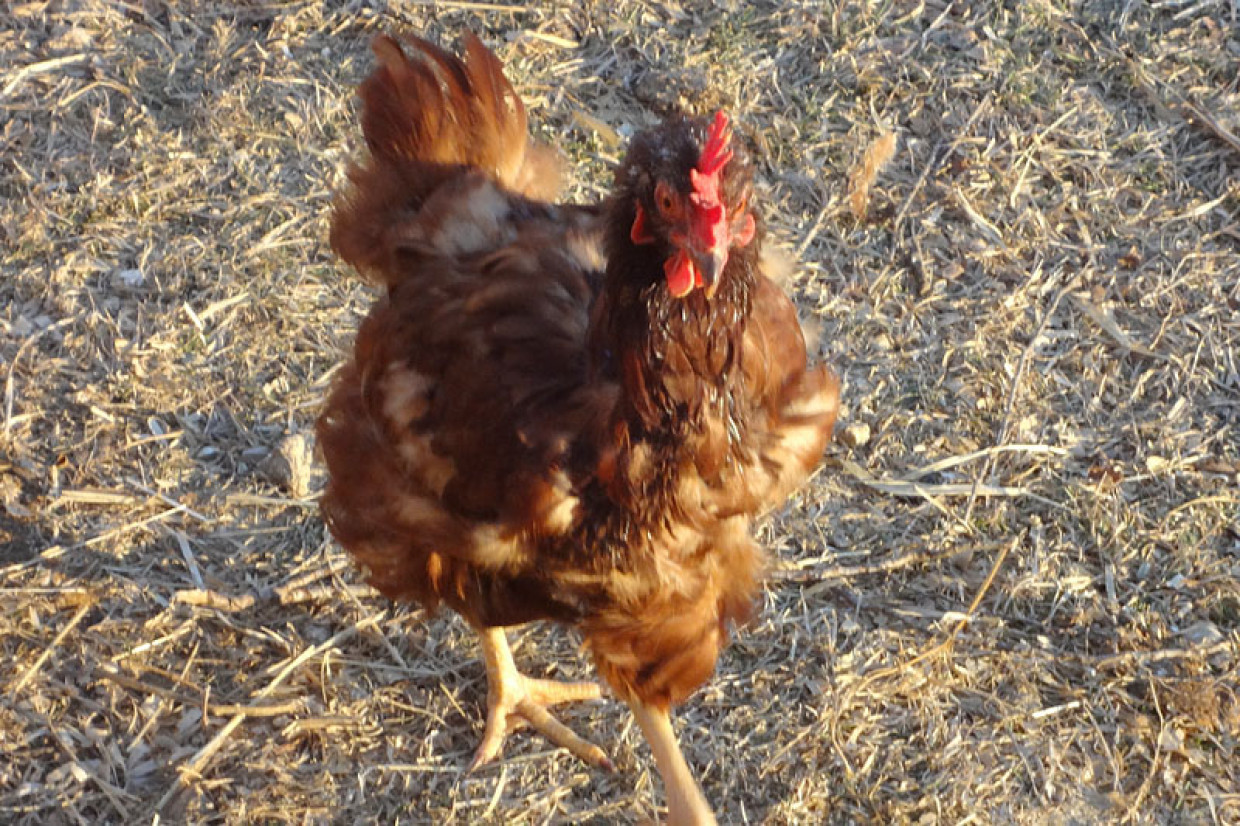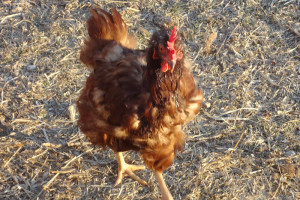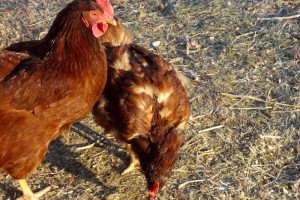Molting Chickens


The other day while working in the barn I heard my boyfriend call my name in that concerned voice of his. As I stepped out in the blistering cold winter air, my boyfriend was walking towards me with an all but bald chicken in his arms.
“What’s wrong with her?” His worried face searched mine for reassurance.
Actually, there wasn’t really anything “wrong” with our little red hen, she had just picked a really bad time to molt.
If you are new to chickens then seeing your birds go through a molt can be quite a traumatic experience. Some birds will go through what is called a “soft molt” in which they gradually lose feathers that are quickly replaced by new feathers. Other chickens experience a “hard molt” in which a hen loses a lot of feathers quickly and remains pretty much bald until the new feathers come in.
Why did our little hen decide that now was a good time to go into a hard molt? That, I can’t tell you. What I can tell you is that “typically” chickens molt in spring or fall. They start by losing the feathers under their wings and stomach and then across the rest of their bodies. After a couple of months the feathers grow back and all is fine.
The one thing I have learned over the years raising chickens is that chickens do not listen to the professionals. We have three hens that are molting right now including the little bald red hen.
If you have molting chickens there are a few things you can do to help them out.
First, provide extra protein. We give our girls suet cakes, extra sunflower seeds and mealy worms to add to their regular layer pellet food. Chickens typically cannot molt and lay eggs. It takes too much protein to do both. Adding the extra protein will help give them a boost.
Keep an eye on your hens. Chickens can be cruel and if they see another hen they perceive to be weak the others may choose to peck at her. You may need to separate your bird for a while if you see this happening. You can try separating for a few days and then put her back. If chickens are mean, they also have very short memories.
If you have chickens that molt in the dead of winter like ours, make sure they have extra bedding to keep them warm. Some people even get those chicken sweaters you can find on-line to give them some protection.
Like most farm animals, chickens do well with routine and do not like to be stressed. Maintain a good feeding pattern, make sure they have enough light during the day, and give them free access to clean water and food. From there your hens should be able to weather their molt.

Reply